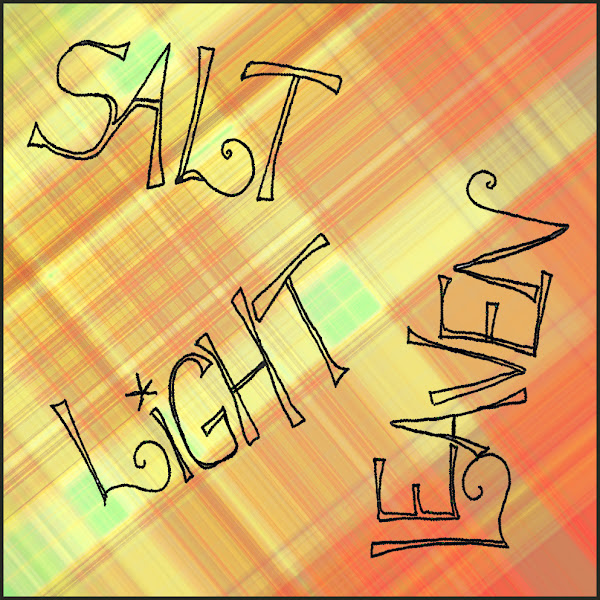Matthew 4:1-11
1 Then Jesus was led up by the Spirit into the wilderness to be tempted by the devil. 2 He fasted forty days and forty nights, and afterwards he was famished. 3 The tempter came and said to him, "If you are the Son of God, command these stones to become loaves of bread." 4 But Jesus answered, "It is written,
'One does not live by bread alone,
but by every word that comes from the mouth of God.'" [Deuteronomy 8:3]
5 Then the devil took him to the holy city and placed him on the pinnacle of the temple, 6 saying to him, "If you are the Son of God, throw yourself down; for it is written,
'He will command his angels concerning you,'
and 'On their hands they will bear you up,
so that you will not dash your foot against a stone.'"
7 Jesus said to him, "Again it is written,
'Do not put the Lord your God to the test.'" [Deuteronomy 6:16]
8 Again, the devil took him to a very high mountain and showed him all the kingdoms of the world and their splendor; 9 and he said to him, "All these I will give you, if you will fall down and worship me."
10 Jesus said to him, "Away with you, Satan! for it is written,
'Worship the Lord your God, and serve only him.'" [Deuteronomy 6:13]
11 Then the devil left him, and suddenly angels came and waited on him.
• Gospel According to Matthew Overview
Where We Are
From Advent into Christmas through Epiphany, [in the global North] ambient light increased and days grew longer in the 3-month long segment of the church's year of grace that celebrated Jesus as light for all, God as God of all creation. And Epiphany was about us as light to the world.
Lent 2023 started on Ash Wednesday. Ashes symbolize the earth we've been created from as well as our mortality—eventually our bodies become dust of the ground. Ashes also represent cleansing. Lent was one of the church's earliest observances, beginning with only a few days, then gradually expanding into our current 40 days excluding Sundays.
Churches that observe the Three Days-Triduum of Maundy Thursday, Good Friday, and Easter generally count Lent from Ash Wednesday through Wednesday in Holy Week; others go from Ash Wednesday through Holy Saturday evening.
"Lent" comes from an Old English word for spring and refers to lengthening days. You may know the music tempo Lento or Slow? Lent historically was the time of preparation for baptism, with baptisms at the Easter Vigil on Easter Eve or very very early Easter Sunday morning.
Lenten Moods
Somber purples and subdued lavenders reflect Lenten repentance. In addition to being a time of catechesis leading to baptism on Easter, Lent is a season for those of us already baptized to consciously live bathed in grace as we confess and repent of sins and shortcomings, sometimes reconcile with those we've wronged or who have wronged us, and then move into the world to live as good news for all creation.
Many people give up or relinquish certain foods, habits, or pleasures during Lent; taking up a spiritual, devotional practice or service activity is popular, too. Some quit their Lenten discipline on Maundy Thursday or Easter Sunday, and some continue it.
Is Lent usually a time of special discipline or focus for you, or not?
The First Sunday in (but not of) Lent
In all three lectionary years, the first Sunday in but not of Lent (because every Sunday is a little Easter) the gospel reading is Jesus' temptation in the wilderness.
Synoptic gospels Mark, Matthew, and Luke all include Jesus' testing by the devil – ha satan – traditionally the prosecuting attorney in Judaism. Mark provides no details; Matthew and Luke reverse the order of the second and third temptation or test.
In our current year of Matthew, Jesus goes from his baptism in the wilderness of Judea [3:1] alongside the Jordan River [3:5-6] into a deeper level of wilderness [Matthew 4:1]. Matthew 4:1 begins with the word "Then."
Then is immediately after Jesus' baptism. Although Jesus did not receive our trinitarian baptism into his death and resurrection, his baptism or mikvah by his cousin John still related to turning-around repentance and newness for the entire people of God, and his baptism was identity-forming and affirming, just as ours is.
Like Moses and like Israel, Matthew's Jesus is called out of Egypt [Matthew 2:15] and goes through a wilderness testing time that necessitates his complete trust and reliance on God's gracious provision. In his interactions with the tempter, Jesus quotes scripture he learned being raised as an observant, synagogue-going Jew. Jesus, the living, incarnate Word of God quotes from the Pentateuch book of Deuteronomy, the written word.
Scripture in our Hearts
In today's passage, Jesus quotes Deuteronomy, with replies that affirm God as source, path, and destination. Jesus had spent a lifetime attending synagogue and being instructed in Torah, so he carried the substance and meaning of scripture in his inner being, which resulted in faithful outer actions that often subverted the economic, religious, and social status quo. Closely related, we've mentioned Mary praying the Magnificat recorded in Luke 1:46-55 – "My soul magnifies the Lord, and spirit rejoices in God my savior" – that's roughly based on Hannah's song in 1 Samuel 2:1-10.
What scriptures, prayers, hymns, or other quotes do you rely on when the going gets rough and tough? When you're confused or uncertain about the next move? What scriptures inspire you when life is glorious and you want to acknowledge and thank God?



